 by Véto-pharma
by Véto-pharma Established in 2014, our experimental apiary now hosts nearly 400 bee colonies. Serving as a true open-air laboratory, the apiary has become a cornerstone of our innovation strategy and a major asset for developing new beekeeping solutions. Closely linked to our Bee R&D Laboratory, this apiary allows us to conduct in vivo trials under real-life conditions and evaluate different application methods.
Over the years, we have significantly increased our investments to expand testing, which is essential for the development of new treatments against Varroa destructor, as well as nutritional solutions and devices to combat the Asian hornet.
This ambitious initiative has borne fruit. It has enabled us to enhance our existing beekeeping product range and develop new treatments and tools for beekeepers. Some of these products are already distributed in France and internationally.
The technical goals are both numerous and essential. They align with a research and innovation approach in beekeeping, aimed at identifying, testing, and developing solutions to address the main challenges faced by beekeepers.
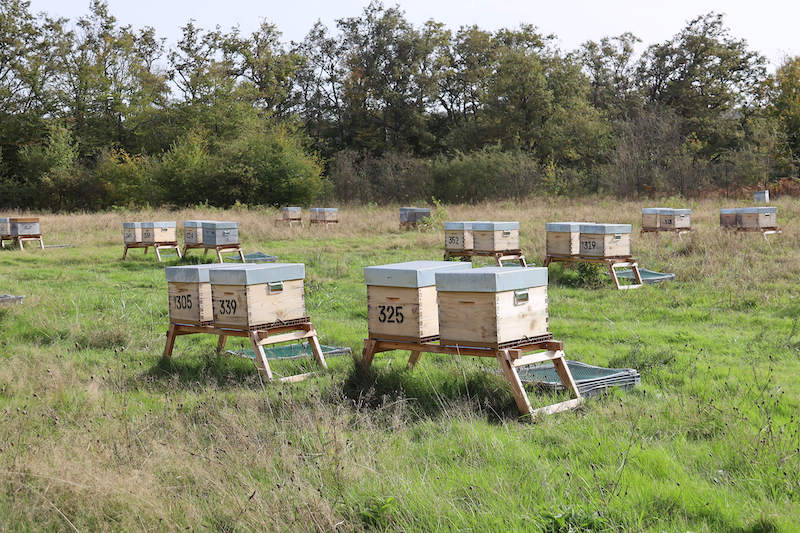
Thanks to its experimental apiary, Véto-pharma can conduct numerous trials independently, without relying on external partners. This independence is a major advantage: it allows for increased responsiveness and faster development of new beekeeping solutions.
From the start of a study, teams can share their observations with formulation specialists. These direct exchanges enable quick back-and-forth between research and fieldwork, fostering continuous improvement of the products being tested in hives.
This collaborative process ensures innovations are more effective and better suited to the real needs of beekeepers.
Another key objective of the apiary is to consolidate the technical references of Véto-pharma’s products. Each solution undergoes rigorous and continuous comparative analyses to assess its performance against field requirements and evolving regulations.
This ensures the reliability, quality, and compliance of the products offered. By continuously enriching its technical database, Véto-pharma ensures its solutions remain indispensable references for beekeepers.
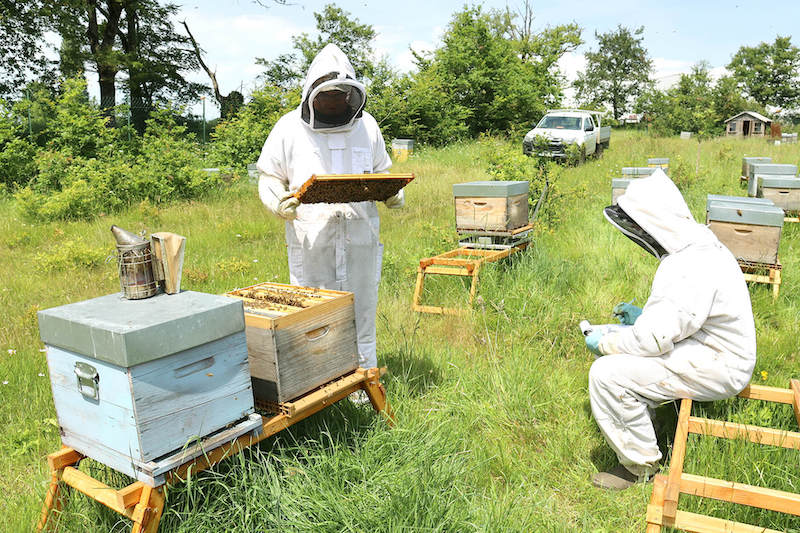
As a pharmaceutical laboratory dedicated to bee health, Véto-pharma is committed to continuously strengthening its technical and scientific expertise.
Trials conducted in the apiary deepen the understanding of apicultural diseases, particularly in combating varroa mite, one of the primary threats to colonies.
These experiments enrich the team’s expertise and contribute to the ongoing improvement of innovative solutions for beekeeping.
The experimental apiary focuses on three key research areas, all directly aligned with our beekeeping innovation strategy.
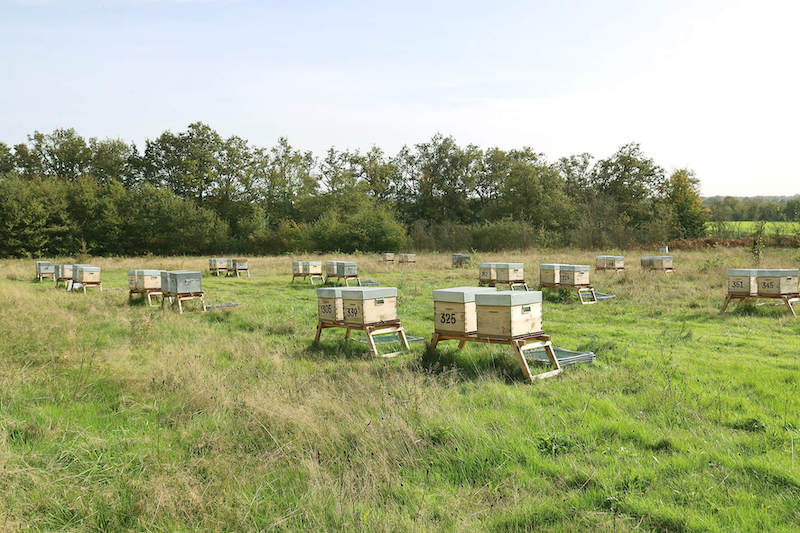
The apiary enables testing and evaluation of new products and innovative devices designed to protect bees.
Trials primarily focus on solutions to combat varroa mite and the asian hornet—two major threats to colonies—as well as approaches to improving bee nutrition.
The R&D team works on new formulations of existing active ingredients and optimizes application methods to better meet the needs of the field and the changing landscape of beekeeping.
The bee innovation team has developed specific testing protocols aimed at accelerating and ensuring the reliability of efficacy studies.
These protocols are designed to meet the expectations of the beekeeping sector and regulatory bodies, while guaranteeing the scientific rigor necessary to develop reliable and reproducible solutions.
By continuously refining evaluation methods, the team ensures the collection of precise and relevant data, which is essential for validating beekeeping innovations and improving products.
Each year, the team evaluates products with Marketing Authorizations (MAs) to verify their efficacy under real-world conditions.
These regular tests ensure that solutions remain effective, particularly in the face of new challenges such as climate change or parasite evolution.
Protocols also include the evaluation of different active ingredients to minimize resistance risks and preserve the long-term efficacy of health products.
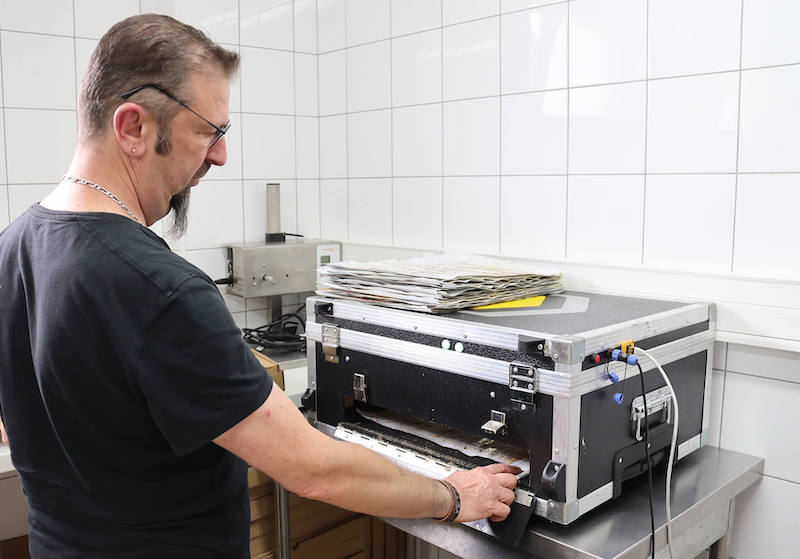
Before implementing technical methods and protocols, the first step is to improve the genetics of the colonies. The goal is to limit swarming and simplify data collection during studies, particularly through desired traits such as docility and good frame-holding behaviour.
The technical methods applied during trials are then adapted depending on the products being tested. To standardize colonies before each experiment, the ColEval (Colony Evaluation) method is used. This approach provides precise, fast, and objective data, contributing to optimized beekeeping management.
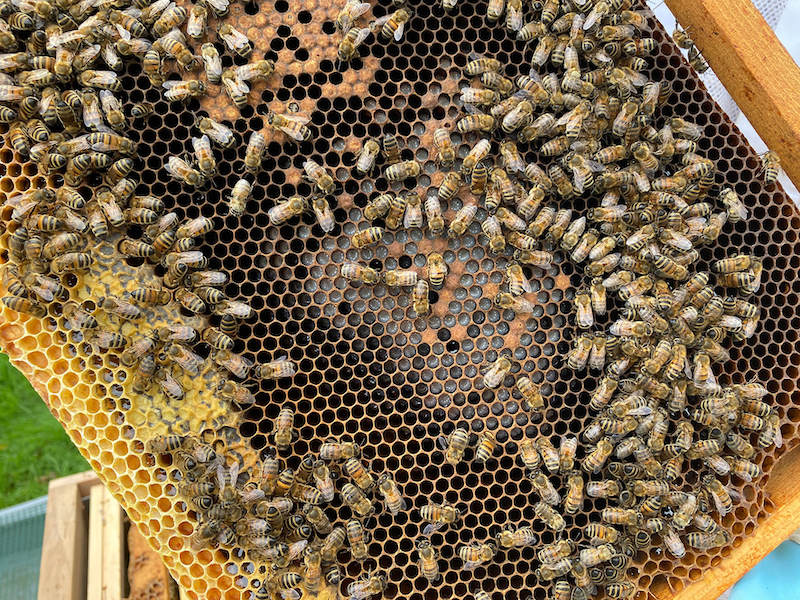
This method, developed by a team of scientists from INRA in Avignon (France), is based on a visual and quantitative evaluation of the different components of the colony.
Simple to use and accessible to everyone, it is based on training using a reference image bank, ensuring consistent and reproducible evaluations.
Key parameters assessed on each side of the frame include:
The percentages are recorded in increments of 5% (one frame side = 100%). This method describes components as continuous variables, facilitating statistical analyses and modeling. It enables the evaluation of a large number of colonies and promotes comparison among different observers.
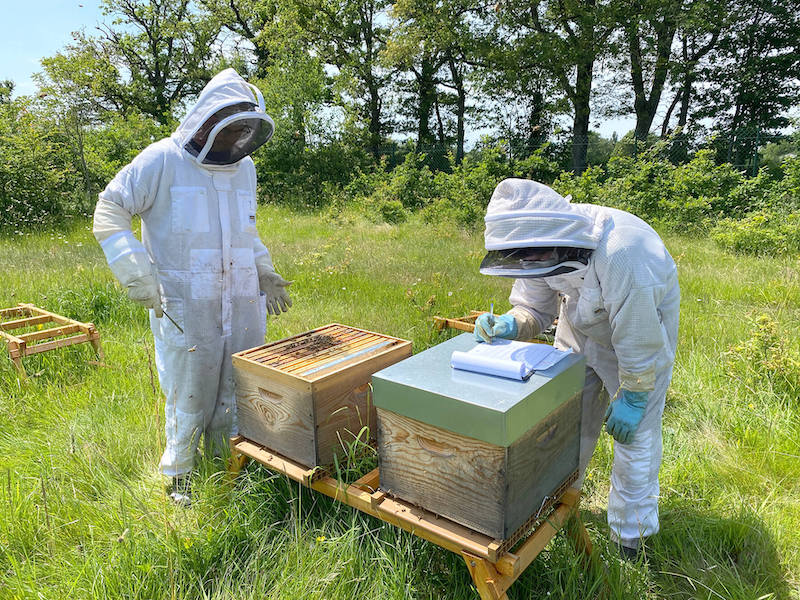
Implementing a study using this method requires 4 to 5 times more monitoring than a traditional hive. Each colony undergoes meticulous work, including standardization, data collection, and regular inspections…
For each study, a specific apiary is set up, with detailed consideration of protocols to ensure direct applications for beekeepers.
For example, in a trial of a solution against Varroa destructor, colony preparation follows a precise protocol:
To expand its research, Véto-pharma collaborates with several partners, such as Simon Fraser University in Canada. Since 2023, this partnership has focused on developing an innovative acaricide based on an active ingredient patented by the university.
These partnerships illustrate Véto-pharma’s commitment to uniting expertise and accelerating global apicultural research.
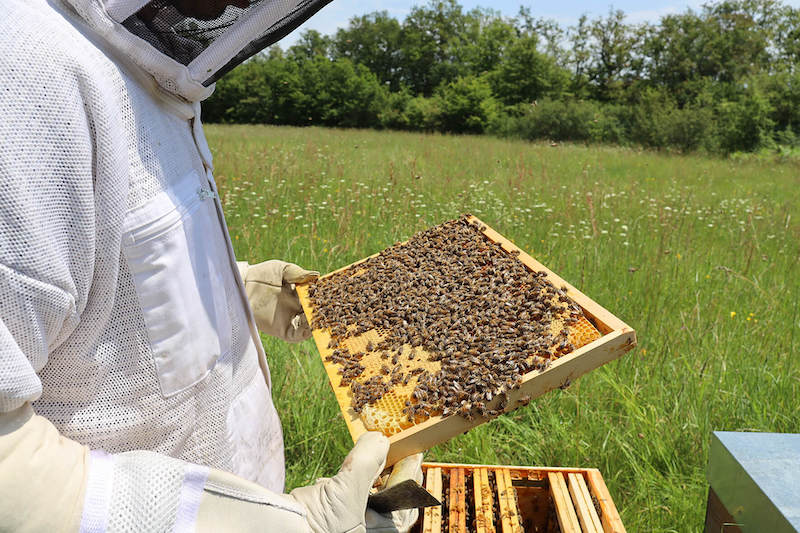
The apiary operates in synergy with multidisciplinary teams, including a Bee R&D laboratory dedicated to screening molecules against Varroa destructor, a galenic development laboratory, an industrial site, and a regulatory team.
To date, there are very few pharmaceutical laboratories worldwide dedicated to bee health with such a comprehensive structure. This uniqueness fosters strong collaboration across various areas of expertise, accelerating the development of innovative solutions for sustainable beekeeping.
Let us not forget that the development of a medication can take up to 12 years from initial research to commercialization.
 by Véto-pharma
by Véto-pharma  by Véto-pharma
by Véto-pharma